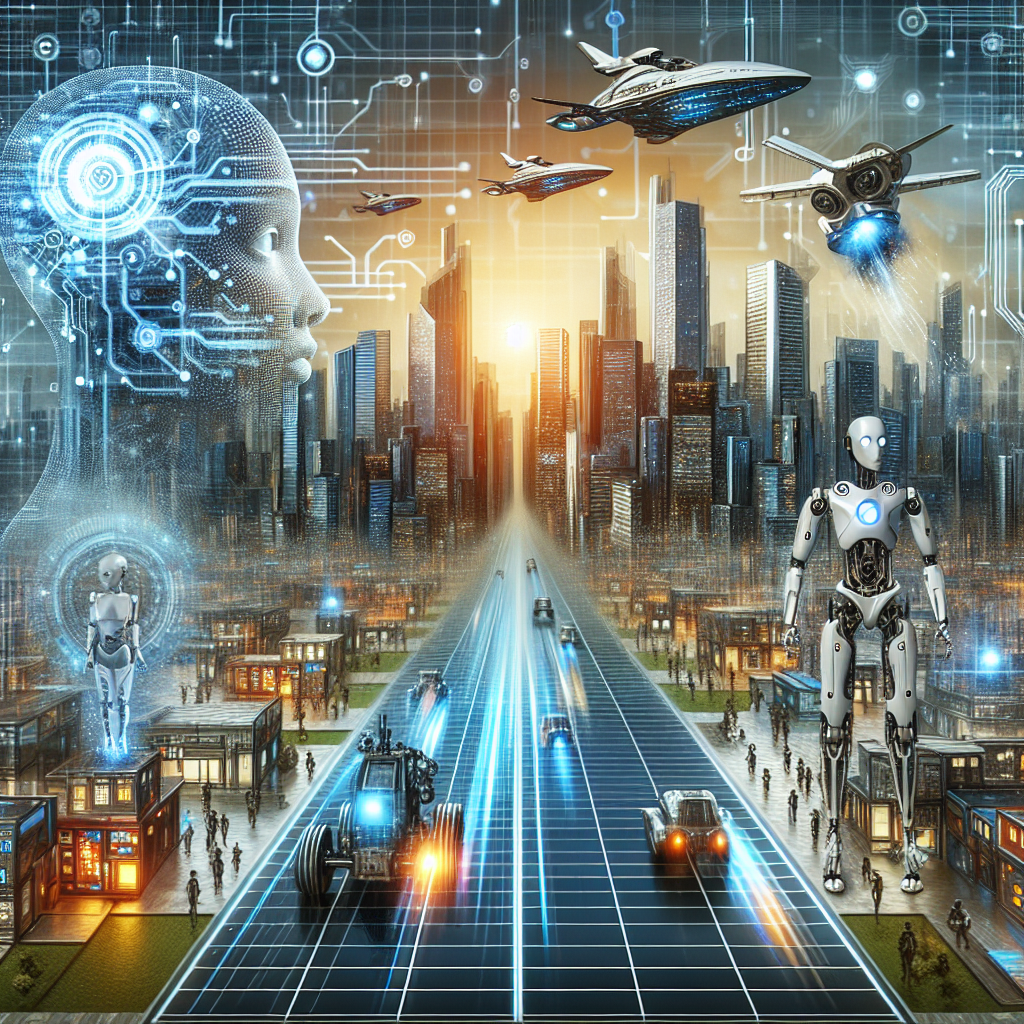As we stand on the edge of a new era, the role of artificial intelligence (AI) in shaping our future becomes increasingly prominent. The next five years promise breakthroughs that will revolutionize various sectors, from healthcare to finance and beyond. This blog post dives into the top AI innovations forecasted for 2025, shedding light on how they’re poised to transform our tomorrow.
1. Advanced Predictive Analysis
One of the prominent AI innovations set to redefine our future is advanced predictive analysis. Leveraging the power of AI, predictive analysis can forecast future events with unprecedented accuracy. This can be a game-changer in sectors like finance, weather forecasting, healthcare, and logistics.
For instance, imagine a world where your doctor can predict potential health risks based on your medical history, lifestyle, and genetic information. Such accuracy in prediction can revolutionize preventative healthcare, enabling us to take timely actions to prevent diseases.
Pros and Cons of Advanced Predictive Analysis
- Pros: Improved accuracy in forecasting, time-saving, cost-effective, aids in decision making.
- Cons: Privacy concerns, the risk of false positives, reliance on data quality.
2. AI-Driven Cybersecurity
As our dependence on digital platforms grows, so does the threat of cybercrime. AI-driven cybersecurity is another major innovation forecasted for 2025. With the ability to learn from every cyberattack, AI can fortify our digital defenses like never before.
Consider the case of a multinational corporation. With AI, the company can monitor its entire digital space in real-time, detecting and neutralizing threats even before they inflict damage.
Pros and Cons of AI-Driven Cybersecurity
- Pros: Real-time threat detection, adaptive learning, enhanced security, reduced human error.
- Cons: High setup costs, increased complexity, possibility of AI exploitation by cybercriminals.
3. Autonomous Vehicles
Autonomous driving technology is another AI innovation set to transform our future. By 2025, we can expect fully autonomous vehicles on our roads, eliminating human error and creating safer, more efficient driving experiences.
Imagine being able to work, read, or even sleep during your commute. Autonomous vehicles can make this a reality, revolutionizing our perceptions of transportation.
Pros and Cons of Autonomous Vehicles
- Pros: Increased safety, improved efficiency, reduced traffic congestion, enhanced mobility for disabled individuals.
- Cons: High implementation costs, ethical dilemmas, cybersecurity concerns, job displacements.
4. Enhanced Natural Language Processing (NLP)
Natural Language Processing (NLP) is already transforming our interaction with technology. By 2025, we can expect AI to understand and respond to human language with near-human levels of understanding, making our interactions with AI more natural and intuitive.
Imagine a world where your virtual assistant not only understands your commands but also understands the context, nuances, and emotions in your speech. This can lead to more personalized and efficient interactions with AI.
Pros and Cons of Enhanced NLP
- Pros: Improved user experience, personalized interactions, increased efficiency, multilingual support.
- Cons: Misinterpretation risks, privacy concerns, reliance on quality data.
5. AI in Climate Change Mitigation
As the threat of climate change looms larger, AI’s role in mitigating its effects becomes crucial. By 2025, AI can help us predict and manage climate-related risks, promote sustainable practices, and optimize our use of resources.
For example, AI can optimize energy consumption in smart homes and cities, reducing our carbon footprint and helping us build a more sustainable future.
Pros and Cons of AI in Climate Change Mitigation
- Pros: Improved prediction of climate-related risks, promotion of sustainable practices, resource optimization.
- Cons: Dependence on accurate data, high setup costs, potential for misuse.
FAQs
1. What is predictive analysis in AI?
Predictive analysis in AI involves using historical data, machine learning, and AI algorithms to predict future outcomes. This can be applied in various sectors, including finance, healthcare, and logistics, to make informed decisions and strategies.
2. How does AI contribute to cybersecurity?
AI contributes to cybersecurity by learning from each cyberattack to improve its ability to detect and neutralize threats. This results in a more robust and adaptive defense against cybercrime.
3. How will autonomous vehicles change our future?
Autonomous vehicles can revolutionize our perceptions of transportation by eliminating human error, increasing safety, improving efficiency, and providing enhanced mobility for individuals who cannot drive.
4. What role does AI play in climate change mitigation?
AI can play a vital role in climate change mitigation by helping to predict and manage climate-related risks, promote sustainable practices, and optimize resource use.
As we look ahead to 2025, it’s clear that AI innovations will play a crucial role in shaping our future. From advanced predictive analysis to AI-driven cybersecurity, the potential of these innovations is enormous. While challenges remain, the pros significantly outweigh the cons, making AI an indispensable tool in our journey towards a more efficient, secure, and sustainable future.
